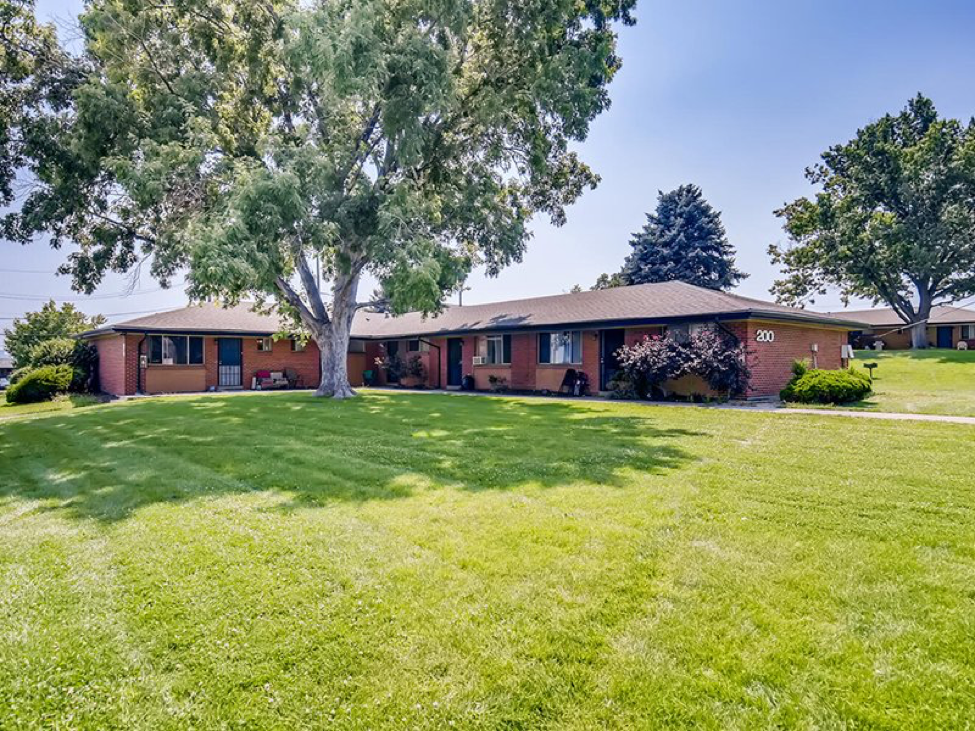
By R.J. Mastic
There is a collective interest in upgrading Denver’s multifamily housing infrastructure to be more sustainable. Investors and property owners are increasingly focused on sustainable solutions, not only to reduce environmental impacts but to meet the rising demand for eco-friendly living.
Owners may also be motivated by mandates included within the Energize Denver ordinance, which is designed to move the city closer to net zero greenhouse gas emissions by 2040. Add to that the rising cost of utilities, and it’s clear that eco-friendly upgrades can positively impact the bottom line. For property owners, committing to sustainability programs and moving quickly toward implementation can have a significant impact in terms of cost savings.
Through 34 projects across the city, our partners have implemented sustainability programs and saved more than $3.8 million in water and energy costs. Bringing on experts to progress a portfolio along a more sustainable path will help meet Energize Denver targets, and other conservation goals, with maximum efficiency. Here are some tips to get started:
1. Consult with experts who know where to look for savings.
Streamline your conservation efforts with a clear process to see opportunities and identify the highest potential for impact – both in terms of financial savings and conservation. Working with experts can help ensure your conservation program solves for the right problem, or combination of problems, and protects your investment. Whether that’s looking at ways to access renewable energy, electrify HVAC systems, replace toilets and light fixtures with high-efficiency options, or improve irrigation systems, experts will customize a program to meet your goals, which creates efficiencies when it comes to design and implementation.
2. Include ESG measures in your physical due diligence process.
Most of the capital to make sustainability upgrades is available to owners around a transaction. As owners assess the market and look for opportunities to expand their portfolios, older, less efficient properties typically hold more potential when it comes to cost savings through sustainability upgrades. Incorporating ESG factors in your physical due diligence will make implementation that much easier. You can also underwrite the savings potential into your transaction, which shortens the amount of time you’ll need to see a return.
3. Build an accurate and actionable road map to goals.
Another important reason to consult with experts when establishing a sustainability program comes back to actionability. It’s one thing to have a report on potential savings that environmentally friendly upgrades could provide, but most owners will find more value in work that helps realize those savings, which only comes in the form of an action plan. Outside experts who work day in and day out on ESG variables will provide a useful road map, not only to meet conservation targets but to assess savings opportunities that might not be immediately apparent without specific expertise in sustainability. This step brings you closer to those savings and also can help avoid unnecessary fees for noncompliance or work that doesn’t directly align with conservation goals.
4. Reinvest savings from lower utility expenses into other sustainability projects.
Owning resource-efficient properties can mean lower utility bills and higher net operating income. This creates savings that you can reinvest into other sustainability projects and building upgrades, all of which help to increase tenant loyalty and retention. Owners can use this information in marketing efforts to attract and retain tenants — demonstrating the measurable effect of conversation efforts in multifamily housing reinforces how owners are helping to shape more sustainable communities.
There’s been a push in recent years to move Denver along a more sustainable path. Property owners can play a significant role toward that end by committing to conservation programs and focusing attention on social and environmental impacts. Those who do will see a significant return on their investment, and have peace of mind knowing they are contributing to Denver’s long-term sustainability goals.
R.J. Mastic is the senior director of business development at EcoSystems, a certified B Corporation helping real estate owners invest in and scale climate-friendly business practices that conserve water and energy. With more than 15 years of experience, R.J. has led the completion of more than 1,000 projects across the U.S. Based in Denver, R.J. is focused on portfolio growth and efforts to generate exponential savings.









